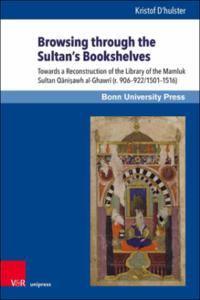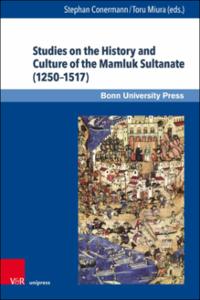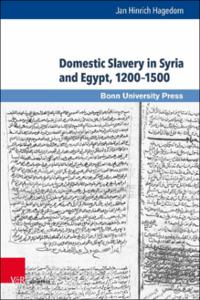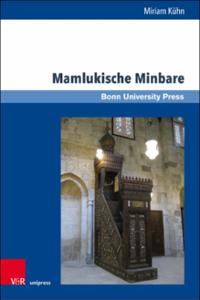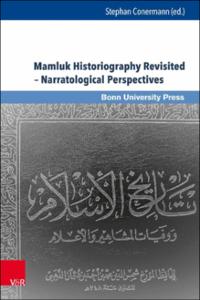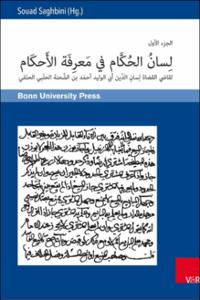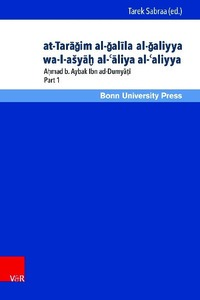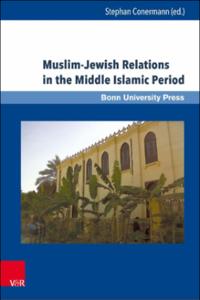Mamluk Studies
Open Access Zweitveröffentlichungen der Reihe Mamluk Studies
Herausgeber der Reihe: Stephan Conermann und Bethany Joelle Walker
»Mamluk Studies« is the first series that is exclusively dedicated to the history, culture and society of the Mamluk Era (1250–1517). It contains source editions, monographs, collections of articles, and conference proceedings in English, French, and German. The Mamluk Empire is a historically unique model of a society. A predominantly Arabic population was dominated by a purely Turkish-born elite of manumitted military slaves who sought to regenerate themselves continuously through a self-imposed fiat. The only person who could become a Mamluk was a Turk who had been born free outside the Islamic territories as a non-Muslim, then enslaved, brought to Egypt, converted to Islam, freed, and finally, trained as a warrior. Only those who met these prerequisites were members of the ruling stratum with all the concomitant political, military, and economic advantages. Patrons and companions provided the individual, rootless Mamluk with a place and support in society. The flipside of this esprit de corps was intra-Mamluk rivalry between the various families, a resulting lack of internal cohesion of the Mamluk ruling caste, and in particular, the loss of power upon the deposition or death of a protector. But despite these pre-programmed tensions inherent to the system, the model of the Mamluk »single-generation military aristocracy« seems to have had a considerable stabilizing effect. At least, it is safe to assume that the longevity of Mamluk rule over the autochthonous clientage of Egypt and Syria is also, or even primarily, a result of the Mamluk principle of constant regeneration.
Alle Titel der Reihe / all items of this series : https://www.vandenhoeck-ruprecht-verlage.com/themen-entdecken/theologie-und-religion/islamwissenschaft/14783/mamluk-studies
Reihenbeschreibung mit freundlicher Genehmigung von V&R unipress.




